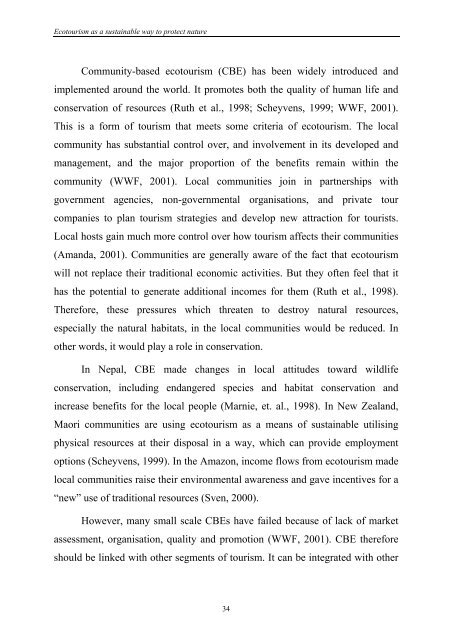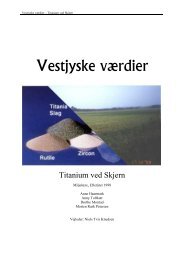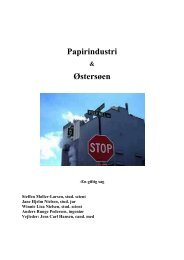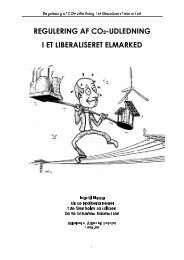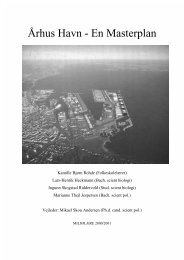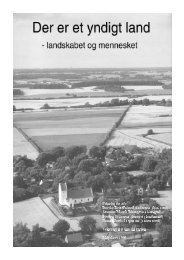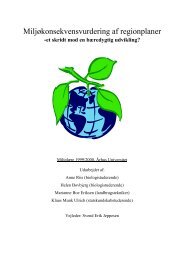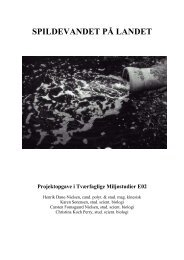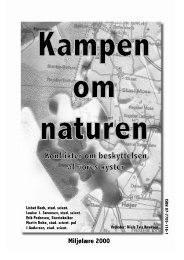University of Aarhus ECOTOURISM AS A WAY TO PROTECT ...
University of Aarhus ECOTOURISM AS A WAY TO PROTECT ...
University of Aarhus ECOTOURISM AS A WAY TO PROTECT ...
You also want an ePaper? Increase the reach of your titles
YUMPU automatically turns print PDFs into web optimized ePapers that Google loves.
Ecotourism as a sustainable way to protect nature<br />
Community-based ecotourism (CBE) has been widely introduced and<br />
implemented around the world. It promotes both the quality <strong>of</strong> human life and<br />
conservation <strong>of</strong> resources (Ruth et al., 1998; Scheyvens, 1999; WWF, 2001).<br />
This is a form <strong>of</strong> tourism that meets some criteria <strong>of</strong> ecotourism. The local<br />
community has substantial control over, and involvement in its developed and<br />
management, and the major proportion <strong>of</strong> the benefits remain within the<br />
community (WWF, 2001). Local communities join in partnerships with<br />
government agencies, non-governmental organisations, and private tour<br />
companies to plan tourism strategies and develop new attraction for tourists.<br />
Local hosts gain much more control over how tourism affects their communities<br />
(Amanda, 2001). Communities are generally aware <strong>of</strong> the fact that ecotourism<br />
will not replace their traditional economic activities. But they <strong>of</strong>ten feel that it<br />
has the potential to generate additional incomes for them (Ruth et al., 1998).<br />
Therefore, these pressures which threaten to destroy natural resources,<br />
especially the natural habitats, in the local communities would be reduced. In<br />
other words, it would play a role in conservation.<br />
In Nepal, CBE made changes in local attitudes toward wildlife<br />
conservation, including endangered species and habitat conservation and<br />
increase benefits for the local people (Marnie, et. al., 1998). In New Zealand,<br />
Maori communities are using ecotourism as a means <strong>of</strong> sustainable utilising<br />
physical resources at their disposal in a way, which can provide employment<br />
options (Scheyvens, 1999). In the Amazon, income flows from ecotourism made<br />
local communities raise their environmental awareness and gave incentives for a<br />
“new” use <strong>of</strong> traditional resources (Sven, 2000).<br />
However, many small scale CBEs have failed because <strong>of</strong> lack <strong>of</strong> market<br />
assessment, organisation, quality and promotion (WWF, 2001). CBE therefore<br />
should be linked with other segments <strong>of</strong> tourism. It can be integrated with other<br />
34


